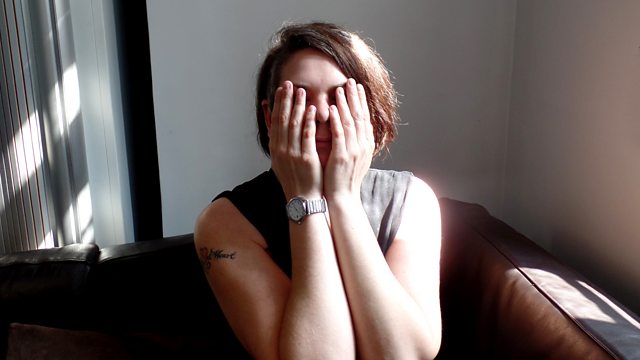Shame
Can shame be a force for good? Or is it always in danger of being a tool of repression? Bridget Kendall explores shame with evolutionary biologist Dan Fessler, philosopher A.C Grayling and environmental social scientist Jennifer Jacquet.
Photo: A person feeling shame (�鶹��/ Shan Pillay)
Last on
Clip
Chapters
-
Jennifer Jacquet
Shame used as a tool for social good.
Duration: 08:14
A. C. Grayling
The history of shame.
Duration: 10:15
60 Second Idea
Dan Fessler: evolutionary heritage needn’t stop us choosing a moral or ethical position.
Duration: 05:01
Dan Fessler
The evolutionary history of shame.
Duration: 12:02
Jennifer Jacquet
![Jennifer Jacquet]() Jennifer Jacquet is an assistant professor in the Department of Environmental Studies at New York University. She focuses on the human dimensions of large-scale social dilemmas, such as overfishing and climate change. She examines shame in her book: Is Shame Necessary? New Uses for an Old Tool. Jennifer feels that shame is a very useful tool to empower people when powerful interests engage in wrongdoing and thinks that ‘the crowd’ can be a persuasive corrective to government and corporate chicanery.
Jennifer Jacquet is an assistant professor in the Department of Environmental Studies at New York University. She focuses on the human dimensions of large-scale social dilemmas, such as overfishing and climate change. She examines shame in her book: Is Shame Necessary? New Uses for an Old Tool. Jennifer feels that shame is a very useful tool to empower people when powerful interests engage in wrongdoing and thinks that ‘the crowd’ can be a persuasive corrective to government and corporate chicanery.A.C. Grayling
![A.C. Grayling]()
Anthony Grayling is a public philosopher and Master of the New College of the Humanities, and a Supernumerary Fellow of St Anne's College, Oxford. He has written and edited over thirty books on philosophy and other subjects. Anthony feels that shame, when negotiated from an ethical rather than moral perspective by society, is a useful social regulator. But agrees with philosopher J. S. Mill who said that opprobrium, ie: the shaming of the individual, is usually repressive.
Dan Fessler
![Dan Fessler]() Daniel Fessler is Associate Professor of Anthropology at UCLA Center for Behaviour, Evolution and Culture and evolutionary anthropologist, whose principal focus is contemporary humans. He combines anthropological, psychological, and biological theories and methods in which humans are viewed as both the products of complex evolutionary processes and the possessors of acquired cultural idea systems and behavioural patterns. Dan believes that public shaming, such as we see on social media and in some communities is both dangerous and bad for democracy. His evolutionary take on shame is that it is born out of a basic survival mechanism from which it has been refined as we learnt how to co-operate.
Daniel Fessler is Associate Professor of Anthropology at UCLA Center for Behaviour, Evolution and Culture and evolutionary anthropologist, whose principal focus is contemporary humans. He combines anthropological, psychological, and biological theories and methods in which humans are viewed as both the products of complex evolutionary processes and the possessors of acquired cultural idea systems and behavioural patterns. Dan believes that public shaming, such as we see on social media and in some communities is both dangerous and bad for democracy. His evolutionary take on shame is that it is born out of a basic survival mechanism from which it has been refined as we learnt how to co-operate.Sixty Second Idea to Change the World
![Sixty Second Idea to Change the World]()
Dan Fessler argues that understanding our evolutionary heritage needn’t determine how we behave towards each other. We can and should choose to be kind, to be good, to be just.
Broadcasts
- Mon 13 Apr 2015 01:05GMT�鶹�� World Service Online
- Tue 14 Apr 2015 08:05GMT�鶹�� World Service Online
Do you use US dollars even though they are not your country’s official currency?
Podcast
-
![]()
The Forum
The programme that explains the present by exploring the past








